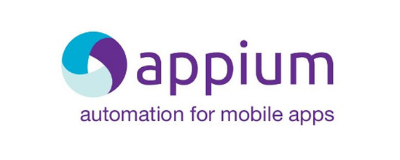The mobile testing requirement is expanding in 2020 by the increase of smartphone users. According to Statista Research Department, 2019, the number of mobile phone users is forecast to reach more than 4.5 billion. However, there are too many testing tools. Testers may get confused, and waste time in tools that didn’t meet their requirements. Because of that, there are some criteria to criticize mobile testing tools before selection:
- Required level of programming skills: Non-technical testers have joined in the automation transformation. It creates a requirement for low-code mobile testing solutions adoption.
- Diversity of operating systems: Either the reusability and the ability to run tests across multiple operating systems play an essential role.
- Supported Mobile Locator Strategies: Dynamic elements or objects in mobile applications are challenging for the automation tool to locate them correctly. Testers should be able to set the locator strategies intentionally with two or more alternatives.
Top 5 Tools For Mobile Testing:
- Appium:

Appium is an open-source made for mobile web, automating native, Android mobile, iOS mobile, and Windows desktop platform. Named “IOS Auto” in 2011 and developed by Dan Cuellar, Appium is now the leading tool in the automation mobile testing field for many years.
Besides, Appium was motivated to rewritten its code in Node.js since Sauce Labs funds Appium’s development. In 2014, it won the Bossie award of InfoWorld and Open Source Rookie of the Year by Black Duck Software. In 2020, Appium’s code can be written by Java, Ruby, Python, PHP, JavaScript, and C#.
Highlight features:
- Appium uses one same API for cross-platform testing, which maximizes the script reusability.
- Appium can strongly integrate with other tools and CI/CD processes.
- Appium supports multiple scripting languages and a wide range of operating systems.
Appium is a solution for mobile testing teams with a relatively high level of programming skills (Appium derives its roots from Selenium, and it uses JSONWireProtocol internally to interact with iOS and Android). Its powerful nature and advanced features allow testers to create and execute test cases.
Website: http://appium.io/
Price: Free
2. Katalon Studio:

Katalon Studio is not only an automation testing tool but also an all-in-one automation testing solution. It won Gartner Peer Insights Customers’ Choice for Software Test Automation Award after three years of publication. Mobile testing features in Katalon Studio inherit vigorous frameworks of Appium and Selenium, which are made to suit the requirement of QA teams at any level. Katalon helps reduce the learning curve significantly. Katalon Studio supports all types of automation under test, from Mobile, Web, Desktop, and API testing.
Highlight features:
- It has a comprehensive and frequently-updated resources hub with documents, tutorials, and guidelines.
- Additional utilities to speed up the automation process: Mobile Object Spy mode that populates object repository; and Mobile Recorder that generates test scripts from record actions
- Katalon Studio supports almost all testing capabilities from Appium with more straightforward setup requirements and less effort for script creation. The tool offers built-in frameworks and keyword libraries that are available to use without any extra setups needed.
- Powerful integration capabilities with external tools (Jira, Git, Jenkin, etc.) and mobile platforms (Lambda Test, Sauces Lab, etc.)
- The user’s community is expanding and very friendly to provide tips, experiences, and distribution.
Easy to get started and designed for both beginners and experts. Katalon Studio also has both Free and Paid versions, for individuals and teams at scale.
Website: https://www.katalon.com/
Price: Free – $759 per year
3. Monkey Talk

Monkey Talk, another open-source mobile testing tool, is a user-friendly tool that doesn’t require jailbreaking. It consists of two primary components: MonkeyTalk IDE and MonkeyTalk Agents.
MonkeyTalk IDE isanEclipse-based tool that records, plays, edits, and manages functional test suites for Android and IOS.
Money Talk Agents are libraries for iOS and Android. MTA must be linked to apps to be tested.
Monkey Talk automates functional, real interactive tests for Android and iOS — catering from necessary smoke tests to data-driven test suites.
Highlighted features:
- Testers can generate XML and HTML reports with this mobile testing tool.
- Automatically take screenshots when error or failure happens.
- For continuous integration needs, Monkey Talk also has inbuilt support for Jenkins and Hudson.
- The same script can be used on both android and iOS.
Website: https://github.com/alexnauda/monkeytalk
Price: Open-source
4. IOS Driver
iOS Driver is a Selenium-integrated mobile testing tool for iOS native, hybrid and mobile applications using Selenium/WebDriver API. Ios-driver integrates with Selenium Grid so you can reuse your existing web automation infrastructure. This tool runs efficiently on emulators rather than devices. As it’s built upon two different frameworks from Apple, Testers should check the system requirements for compatibility. The latest version is 0.6.5
Highlighted features:
- Once compatible, testers can utilize some features of the Apple-developed X-code.
- Don’t need to jailbreak devices, change any app code, or load any additional app for testing the app on devices.
- Implements the JSON wire protocol
- iOS Driver can be used as a Selenium Grid Node; thus, tests can be run parallel on the same architecture as the web, decreasing the feedback time for the GUI test.
Website: https://ios-driver.github.io/ios-driver/
Price: Open-source
You can find more best automation tools for Mobile Testing from this list.
5. Robotium:
Created as an extension of the Android framework, Robotium is an open-source Android-only mobile testing tool that supplies robust automatic black-box test cases for Android applications.
The framework is released under Apache License 2.0 and developed by Renas Reda. The latest Version 5.0.1 was released on January 5, 2014.
Highlighted features:
- Supports Java as the main programming language.
- Robust integration with Maven and Ant.
- Robotium allows the automation of multiple Android activities and creates solid test cases in minimal time.
- An extensive library of unit tests.
Website: https://github.com/RobotiumTech/robotium
Price: Open-source
If you are a beginner in Tools For Mobile Testing, this is 5 tips for you to succeed.
6. Calabash
Calabash is an open-sourced mobile app testing tool for iOS and Android and developed by Xamarin. Even though it lacks a recording function, Calabash makes up for being one of the few mobile testing tools that support Cucumber; Calabash contains actual tests written in Gherkin, backed by Ruby, and runs in the context of the Cucumber Framework.
Highlighted features:
- Using Xamarin Test Cloud, Testers can test cases on more than 1000 devices with real-time feedback and validation across many different form factors, OS versions, OEM customizations, and hardware specs.
- Supports Ruby, Java, and C# as programming languages.
- Aside from essential integration with CI/CD tool integrations, Calabash also has separate libraries for iOS and Android that allows testers to interact with native and hybrid apps programmatically.
Website: https://github.com/calabash/calabash-android
Price: Open-source
⇓ Subscribe Us ⇓
If you are not regular reader of this website then highly recommends you to Sign up for our free email newsletter!! Sign up just providing your email address below:
Happy Testing!!!
- Why Can Codeless Testing Tools Overcome the Barriers of Test Automation in 2020?
- Top 10 Codeless Testing Tools to Look Out for in 2020
- 6 Steps To Eradicate Mistakes Using Mobile Test Automation Strategy
- Start Your API Testing Project with Katalon Studio
- Creating test cases using Record and Playback
- Katalon Studio 7: A Glance Over Top 7 Advanced Features
- Start your Desktop Apps Testing with Katalon Records feature
- How Katalon Smart Wait feature can handle web loading issues?
- Codeless Test Automation – Going Beyond with Migrating Selenium Tests to Katalon Studio
- API Testing with Postman and Postman Alternatives
